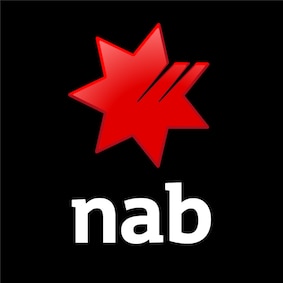What is EOFY?
The end of the financial year (EOFY) refers to the end of the accounting period, which runs from 1 July to 30 June each year. It’s a crucial period for businesses as they have to meet their financial reporting obligations.
At the end of the financial year small business owners begin finalising their tax time paperwork and accounting. From 1 July through to 31 October individuals and businesses submit their tax return to the Australian Taxation Office (ATO), who use the information to determine how much tax you owe or are owed.
Get your documents in order
Make sure all your financial records such as income and expenses, invoices, receipts, and bank statements, are up to date and accurately recorded. You may need to generate a profit and loss statement, do a stocktake (if your business has inventory), record any asset purchases or expenditure you’ve made to improve your business. These may be needed to ensure that your business finances for the year are captured accurately and that any depreciation expense claim or capital gains tax can be calculated accordingly.
Meet your superannuation obligations
If you hire employees in your business, you will also need to meet your superannuation obligations by making required contributions for your employees and yourself before the end of financial year. This includes super guarantee payments and associated record keeping.
Working out your deductions
As a business owner, you may claim tax deductions for most business expenses. It’s important to do your research and find out exactly what tax deductions you can claim, opens in new window. You should be able to claim on the operating cost of running your business such as interest and fees on your business loans, motor vehicle expense, travel expense and more.
Always ensure that you have records to prove your business expenses in order to claim a deduction.
Lodge your tax return
If you’re a sole trader or self-employed, you need to lodge an individual tax return each year. Your business income and expenses go in your individual tax return using a separate business schedule. Companies need to lodge a separate company tax return each year, but business owners must also lodge an individual tax return for income they've earned via wages, shares and dividends from the company.
Make sure your income and deductions are correctly reported to calculate your taxable income and determine your tax liability or refund.
Many regulatory and tax changes occur at the end of the financial year. These might include changes in tax law and deductions or concessions for small business. If you have a tax professional, they can help you to understand those changes. You can subscribe to the ATO’s small business newsroom, opens in new window to stay up to date on tax, super and registry services.
Dates for lodgement
See below for lodgement dates if you’re lodging the return yourself. If you lodge through a registered tax agent, contact them for more information as different dates may apply.
Sole trader or self employed
If you are a sole trader or self-employed your tax return can be lodged from 1 July to 31 October each financial year
Partnership
If you are a partnership and you lodge by yourself, your partnership tax return can be lodged from 1 July to 31 October each financial year.
Company
Most company tax returns will be due 28 February each financial year, however we recommend you check the governments web page Never miss important dates, opens in new window. ATO website for your specific date.
Prepare for the next financial year
To ensure that you meet your reporting obligation in the next financial year, see the ATO’s Reporting and lodgement dates, opens in new window in order to avoid ATO penalties for any overdue lodgement.
The EOFY is also the best time to review your business’s financial and plan for the next head ahead. Creating a budget and setting targets for your sales, production or services activities will prepare you to for success s in the new financial year.
It is also a good opportunity to run a business financial health check, opens in new window to make sure you’re on the right track.
Other business moments
Tax time tips for small business
Our helpful tips take the hassle out of tax time.
Small business tax breaks and deductions
Discover how you could save your business money.
Business financing options to help your cash flow
A guide to financing options to help you meet your cashflow goals.
Related products and services
Trade finance
Meet your working capital needs with finance for your export, import and domestic trade purposes.
NAB Connect
NAB Connect is a powerful online banking solution that gives you total control over your business.
Business loans
Manage your cash flow, purchase stock or inventory and grow your business with our wide range of business loans.
Get in touch
Contact us
Visit our business banking contact page for how-to-guides and FAQs, as well as contact numbers.
Visit a NAB branch
Our business bankers are located all around Australia.
Important information
Apologies but the Important Information section you are trying to view is not displaying properly at the moment. Please refresh the page or try again later.
The information provided in this article is intended to be of a general nature only. It has been prepared without taking into account your objectives, financial situation or needs. Before acting on the information in this article, National Australia Bank Limited (ABN 12 004 044 937, AFSL and Australian Credit License 230686) (NAB) recommends you consider whether it is appropriate for your objectives, financial situation and needs. NAB recommends that you seek independent advice before acting on any information in this article.

